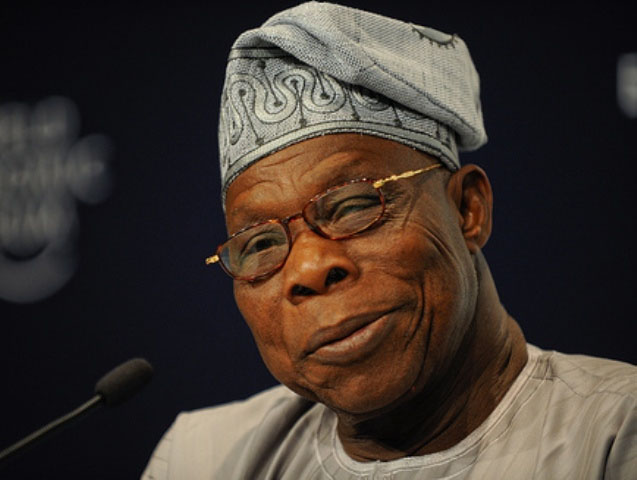Former President Olusegun Obasanjo is confident that Nigeria will overcome its security challenges and other problems it is grappling with.
He said although the call for the nation’s break up may be loud, it would never be heard and would be a thing of the past.
The former president made the remarks on Wednesday at an event in Ogun State where Governor Dapo Abiodun and his Oyo State counterpart, Seyi Makinde, also called for peace, unity, and end to violence in the country.
“My two brothers talked about the situation we are in,” he said while referring to the two governors who spoke earlier.
Obasanjo added, “You know, I am an incurable optimist about a number of things, but particularly about Nigeria.”
Speaking in Yoruba language, the elder statesman gave a parable that implied that while the present situation might be tough, the country would surely overcome.
Former President Olusegun Obasanjo speaks at the NBC 108th Annual Convention in Ogun State on April 28, 2021.
The event was the 108th annual convention of the Nigerian Baptist Convention (NBC) held at the church’s international conference centre along the Lagos-Ibadan expressway.
It was also used to conduct a valedictory and commendation service for Reverend Samson Ayokunle, the retiring President of the church and President of Christians Association of Nigeria (CAN).
Obasanjo, who is a member of the Baptist Church, commended Reverend Ayokunle for serving meritoriously in his capacity as a leader in the church.
Other dignitaries who attended the event included top clergymen, traditional rulers, and political officeholders.
Amid growing concerns about insecurity in the country, members of the House of Representatives called on President Muhammadu Buhari to declare a state of emergency on security to fast-track all measures towards restoring peace in the country.
They also mandated the House Security Committees to immediately commence a comprehensive audit of all military and paramilitary assets and arms and revert back within four weeks.
The lawmakers condemned the attacks on security personnel and formations and parts of the country and sympatised with their families, as well as the families and communities that have been victims of banditry, terrorism, and criminal acts.



